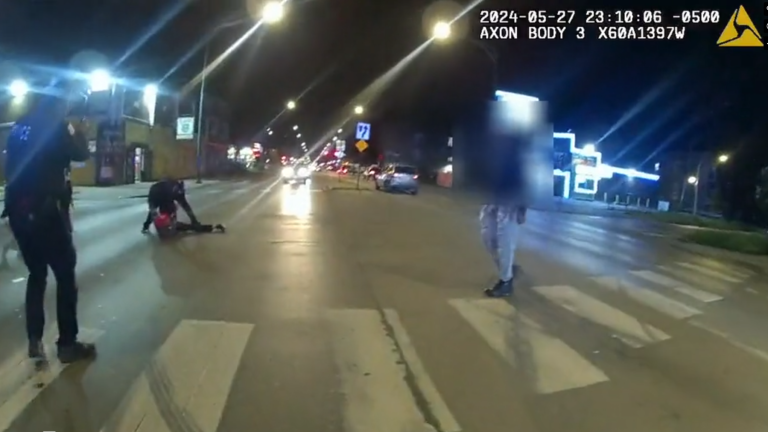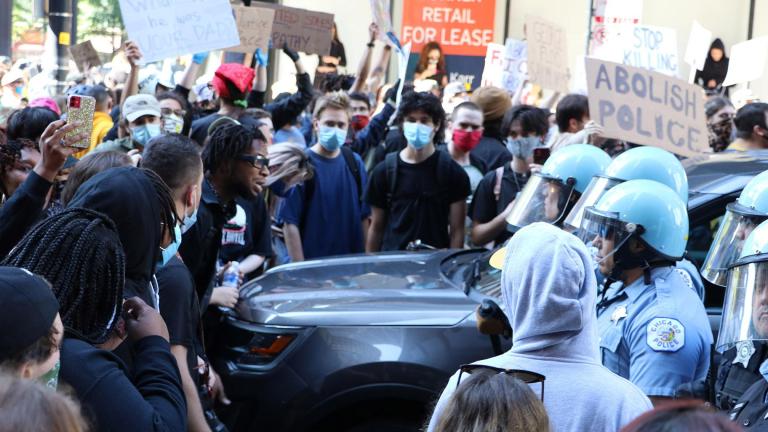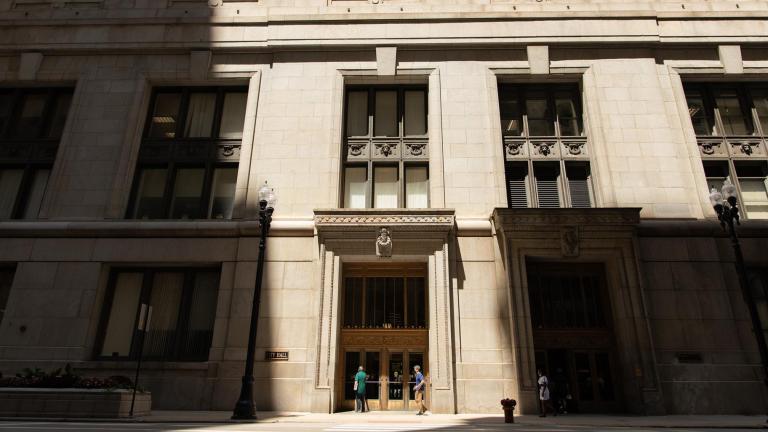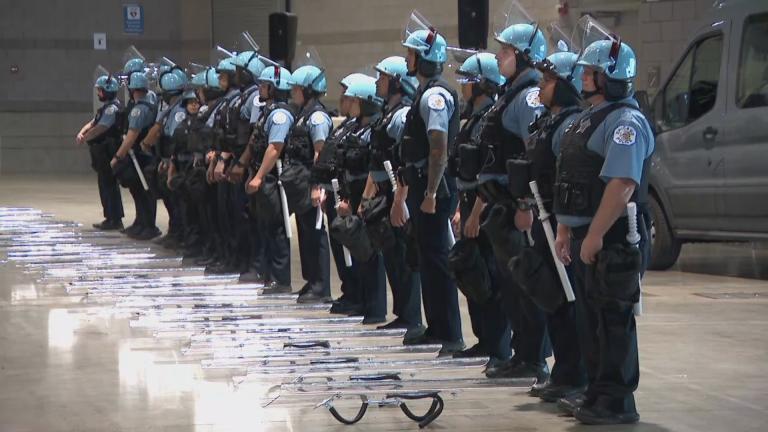A new online archive documenting the stories of police torture survivors was recently launched by the journalism nonprofit the Invisible Institute.
The Chicago Police Torture Archive details allegations against former Police Cmdr. Jon Burge and his group of officers known as the “Midnight Crew” who reportedly tortured suspects to coerce confessions.
READ: New Online Archive Documents Years of Police Torture Under Jon Burge
For years, activist groups campaigned for reparations for the survivors, which the city agreed to in 2015. Among the terms of the reparations package was what became the Chicago Torture Justice Center in Englewood. The center offers services to survivors to address the trauma of police violence.
Aislinn Pulley, co-executive director of the Chicago Torture Justice Center, says as the center enters its fourth year in operation, it continues to offer free mental health services to anyone impacted by police violence, including families of survivors.
“We incorporate a community counseling model, which means that we understand the multifaceted ways in which state violence in particular, police violence, can become very isolating reality for folks. So that means that our clinicians see people in the office, of course, but go out into the community,” she said. “We realize that the normal functioning of the typical counseling office is not sufficient and so we’ve amended our practices in order to mitigate the reality that many survivors experience, like agoraphobia and other extreme consequences of isolation that results from the type of PTSD that we see.”
Mark Clements is among those whose story is told in the archive. He was tortured to confess to a crime in 1981, when he was just 16 years old. Clements was incarcerated for 28 years before his conviction was overturned in 2009.
Since his release and exoneration, Clements has dedicated himself to working for justice for the wrongfully incarcerated.
“Being a 16-year-old kid taken down to a police station and tortured and no one believing what took place inside of the police station, I think it’s very important for African American people to not just take the pain, but to at least put yourselves in the position to dish the pain out for reforms,” Clements said. “We have a broken system of justice and that broken system of justice has worked to demonize and that’s what happened to me. I was affected as a result of trauma spending all of my youth behind prison walls, and I just want … the city of Chicago, all of our leaders, to understand that first of all, that I am someone’s son that this happened to. That person died fighting to free me, and I will keep her voice alive through me, for her and for all the men and women that were systematically tortured under Jon Burge.”
Pulley says the work of the Chicago Police Torture Archive is vital to holding the city – and history – to account.
“Some of what we’ve seen over the course of the decadeslong fight to expose the truth is that these stories were originally denied and repressed,” she said. “It took decades of survivors refusing to remain silent and to continue to tell their stories over and over again, and it’s important that that continues because … revisions happen around history. Another important aspect is that torture continues. This hasn’t ended. This is not a dark period in Chicago’s history … It didn’t end with Burge.”








